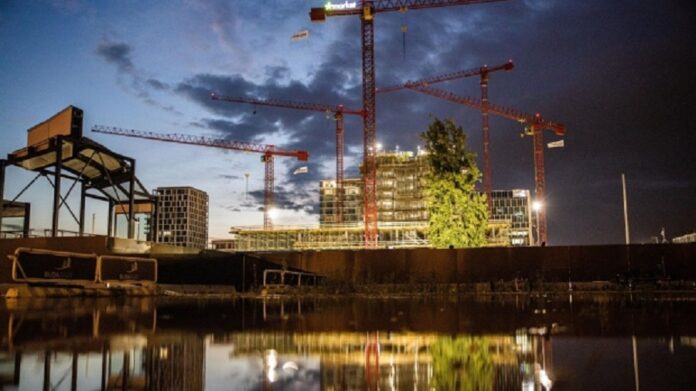Skyrocketing construction costs and a growing focus on the environment is triggering a shift in eastern European real-estate developers towards the green refurbishment of existing buildings rather than the construction of new ones, according to Bloomberg.
„Increasing demand for buildings with higher environmental profiles has already boosted returns on such assets, while transactions of real-estate without a so-called ESG rating are becoming scarce,” said Kristof Barany, Managing Partner at Adventum Zrt., which buys and manages properties in Hungary, Poland, the Czech Republic and Romania.
“For many international institutional investors, ESG is becoming an entry threshold for investments,” Barany, whose fund manages a 600 million euros real-estate portfolio, said in an interview in Budapest.
Adventum on Wednesday announced that its Penta Fund bought Daimler AG’s headquarters in Warsaw for about 50 million euros. The building, developed in 2004, currently doesn’t have an ESG rating and Adventum plans to obtain one following upgrades to energy efficiency.
Refurbishment including insulation upgrades and the introduction of solar panels is becoming relatively more cost-efficient compared with new construction as costs spiral upwards. Inflation across the region is at or near the highest level in a decade or more, with building material prices surging even faster.
Barany stated that it may also be a greener solution than razing an old building and constructing another in its place, even if the a new one is a low- or zero-emission property. He said 30% to 50% of a building’s lifetime emission comes during construction.
Real estate deals in the eastern part of the European Union dropped to 9.7 billion euros ($11.2 billion) last year amid the coronavirus pandemic from a record 14 billion euros in 2019, according to data from Jones Lang LaSalle Inc.
Eastern Europe’s office market is set to become tight in two to three years as demand picks up and new developments slow due to rising costs, Barany said.


